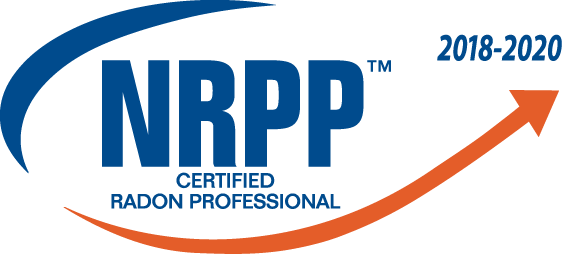Follow Us x
Make Sure Your Home Safe
Since radon gas is invisible and undetectable by any human senses, it is impossible to know if your home, office building, or school has high levels of Radon without testing. Testing for Radon is actually quite simple. You can test yourself at home with a do-it-yourself test kit or call us to get a certified technician to come perform the test for you.
How testing works
Tennessee Radon Services only uses EPA approved testing devices that must be calibrated and we perform extensive quality analysis and quality control practices to ensure our testing devices are accurate and dependable. When you contract Tennessee Radon Services to perform a test on your home, we use a CRM or a Continuous Radon Monitor and a NRPP certified technician will be on site to set and retrieve your testing device. Our technician will locate a room in the lowest livable area of your home since Radon gas rises from the soil, and deploy it for 48 hours. Once the test is complete, the technician will return and be able to give you an hour by hour report about the radon levels in your home. This will determine whether your home will need a mitigation system or if the air you are breathing is safe. Radon levels are recorded in picocuries per liter or piC/L. The EPA has set a 4.0 piC/L as the action level for needing a radon mitigation system in the US. If your overall average is above 4.0 piC/L it is recommended that you install a mitigation system. If your level is below that, it is recommended that you test your home again in 2-5 years as radon levels will fluctuate and change over time.
At Home Test Kits
If you are choosing to do a radon test, just for yourself and your family's health, the most inexpensive and unobtrusive way to do this would be to order a do-it-yourself test kit. These are designed to be short term tests that you put in your home for 2-7 days or you can do a long term test for 90-365 days. These tests do not give you an hourly reading like a CRM, but they do give you an accurate average radon level and are still EPA approved devices. Short terms tests give you the ability to know what your conditions are quickly during that time period whereas long term tests give you a more accurate depiction of what is happening in your home over a longer period of time. You will receive your test kit in the mail, and follow the detailed instructions to set the test. Once your time frame of testing is over, you simply drop the test in the mail to the laboratory that analyzes your results and sends you a report on your Radon levels.
How to Prepare for a Radon Test
For the most accurate test results, there are a few guidelines to which you should adhere.
- Close all windows and doors for a full 12 hours before test begins. Normal in and out activity is fine, but do not keep doors or windows propped open before and during your Radon Test.
- Exhaust fans, ceiling fans, attic fans and window fans should be kept off as much as possible.
- Heating or cooling system should be set between 65-75 degrees with fan in auto mode during the test and fan should be in AUTO mode.
- If there is already a mitigation system installed in the home or building, be sure that it is on and has been running for a full 24 hours before the test is conducted.
Radon Testing for Real Estate Transactions
In the state of Tennessee, Radon Testing is not a requirement for real estate transactions at this time. It is however, an attractive selling point for many buyers to either know that a home has passed a Radon Test or has an active mitigation system in place. We often now are seeing that buyers are listing radon testing as a contingency in their purchase contracts. If your home tests high during a real estate transaction, we are happy to work with agents or customers for a pay at closing structure for the mitigation system.



